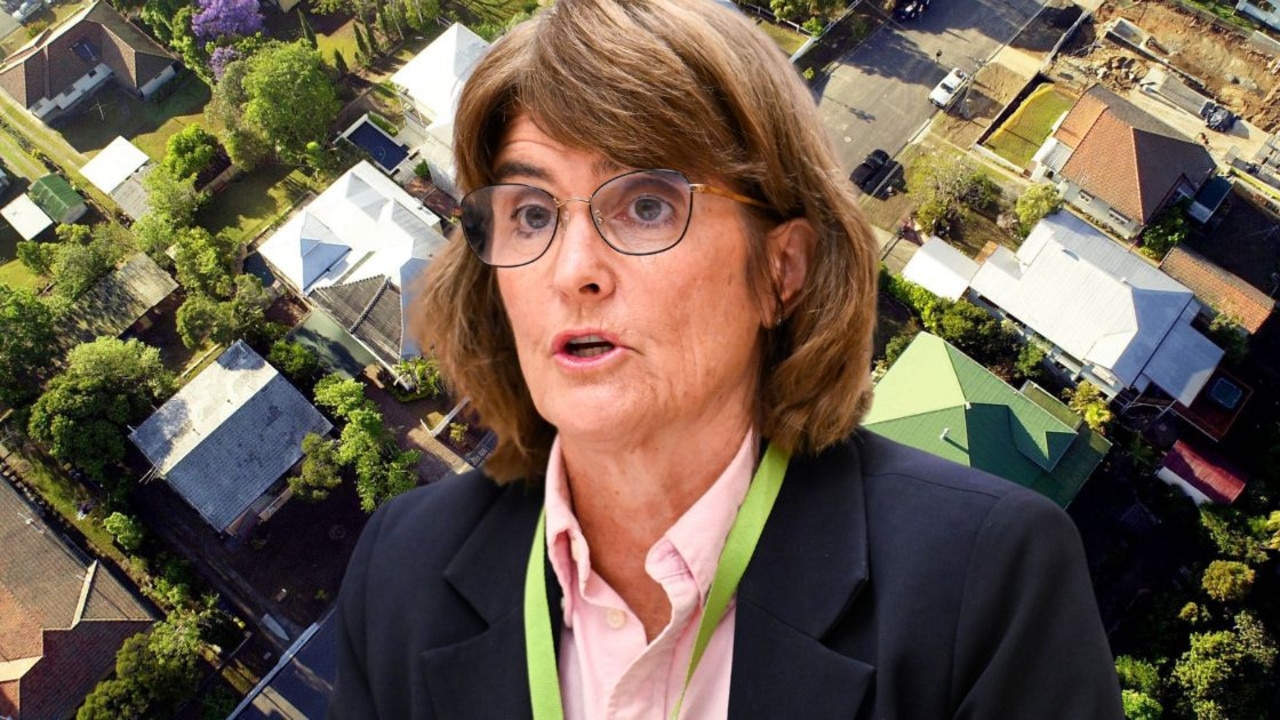McDonald’s wagyu burger targeted by breeders as ‘not the real deal’
THE wagyu beef association has criticised McDonald’s for selling a wagyu hamburger that is “not the real deal”.
CM Insight
Don't miss out on the headlines from CM Insight. Followed categories will be added to My News.
THE wagyu beef association yesterday criticised McDonald’s for selling a wagyu hamburger that was “not the real deal”.
McDonald’s burger meat is not from 100 per cent pure bred or full-blood wagyu cattle, says Dr Matt McDonagh, chief executive of the Australian Wagyu Association.
He says the mince comes from a wagyu-angus crossbred animal known in the industry as an F1. A source at Oakey abattoir, near Toowoomba, confirmed this.
McDonagh stopped short of accusing the burger colossus of deceptive trade.
McDonald’s chiefs declined to be interviewed, but in a statement said: “Our wagyu product is labelled in line with industry standards.”
In a deal broadly welcomed by graziers, McDonald’s purchased 280 tonnes of ground beef from Darling Downs firms. The burgers are sold nationwide for between $10 and $11 – around twice the price of a Big Mac.
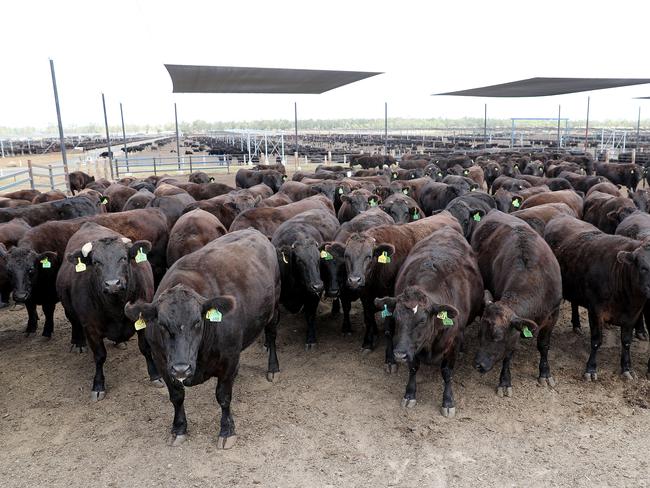
In its press releases in March, McDonald’s describes the hamburger as “a burger featuring 100 per cent Australian-bred wagyu beef”.
Federal Agriculture Minister David Littleproud, who lives at Warwick close to some of the nation’s biggest beef feedlots, uses similar words.
“The burger, which is a world-first for McDonald’s, features a patty made of 100 per cent Australian-bred wagyu beef,” he says.
Says McDonagh: “It’s not ideal. We would prefer any burger to be more accurately labelled.”
He says the association does not intend to make a formal complaint to the Australian Competition and Consumer Commission.
“It’s not the role of the association to be the policeman.”
The ACCC will not confirm or deny it is investigating McDonald’s. However it notes that under Australian consumer law “businesses are prohibited from making false, misleading or deceptive claims about their products”.
And it adds: “Whether a claim is misleading will depend on the overall impression given to a reasonable consumer in the context of each case. Any claims a business makes about their products should provide consumers with clear, accurate and truthful information.
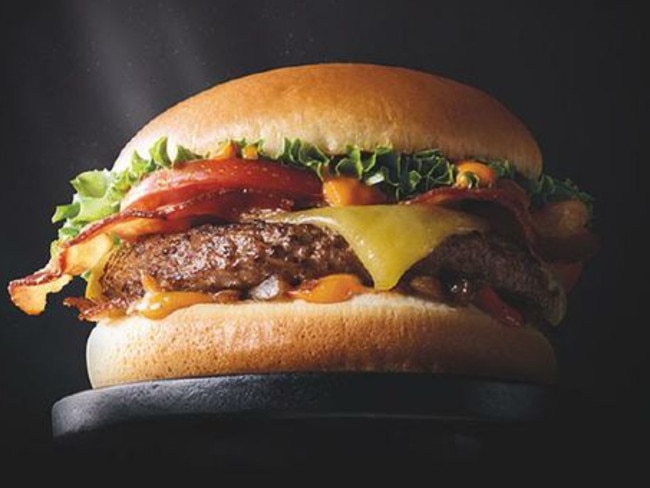
“This applies to food labelling, advertising and any information provided to consumers by sales staff.”
McDonald’s is not alone in the controversy. McDonagh says Woolworths is selling a wagyu meat patty that is not 100 per cent full blood or pure bred wagyu beef. Grill’d is also selling a “wagyu wonder” burger from crossbred cattle.
And The Courier-Mail understands there are a dozen restaurants selling “wagyu” beef that is not 100 per cent wagyu.
McDonagh adds: “Consumers are purchasing a product on face value that is only 50 per cent wagyu genetics. Do not eat the hamburger expecting the real wagyu experience.”
He fears McDonald’s may have unwittingly cheapened the wagyu brand. McDonagh’s comments go to the heart of truth in labelling laws.
It’s a vexing controversy that has sent state and federal ministers scurrying for cover.
Despite his concerns McDonagh has no qualms about eating the McDonald’s wagyu burger. In fact he has eaten four of them on separate occasions and found them to be top quality Australian beef.
“It is good eating but it is not true wagyu,” he says.
“That said the F1 is streets ahead of standard domestic beef sold in supermarkets.”
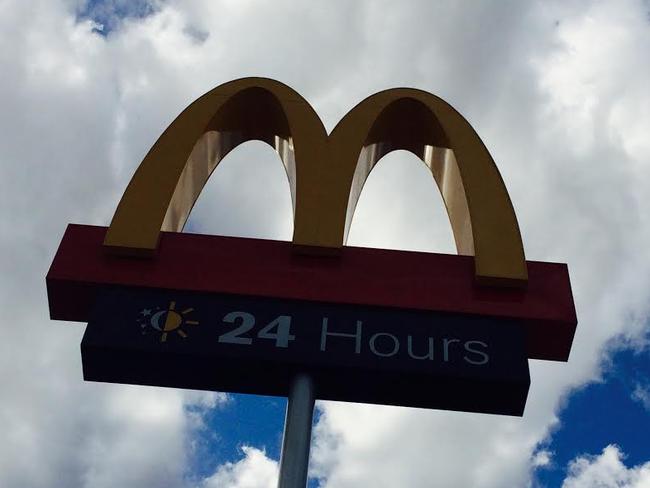
He says an F1 animal has a marble score of three, compared with a full blood or pure bred wagyu with a marble score of seven of eight or even higher.
“The flavours are poles apart. It’s a totally different product. It’s as different as lamb and beef.”
He says wagyu is tender, intensely beefy and juicy thanks to layers of intermuscular fat delivering the high marble score so prized by the export market.
McDonald’s has declined to say what percentages of angus or wagyu are in the burgers.
“McDonald’s is a proud supporter of the Australian agriculture industry; every year we purchase more than 70 million kilograms of Australian beef for use in our restaurants locally and overseas,” says a spokesman. “Our wagyu burger is made with great quality beef, bred and raised by Australian farmers. The product has been incredibly well received by our customers and industry partners.”
Later, Littleproud told his staff he was unaware the burger contained beef from a crossbred animal.
In a statement he said: “I support truth in labelling. I believe customers have the right to know what’s in the burger.
“(McDonald’s) should be upfront about that.”
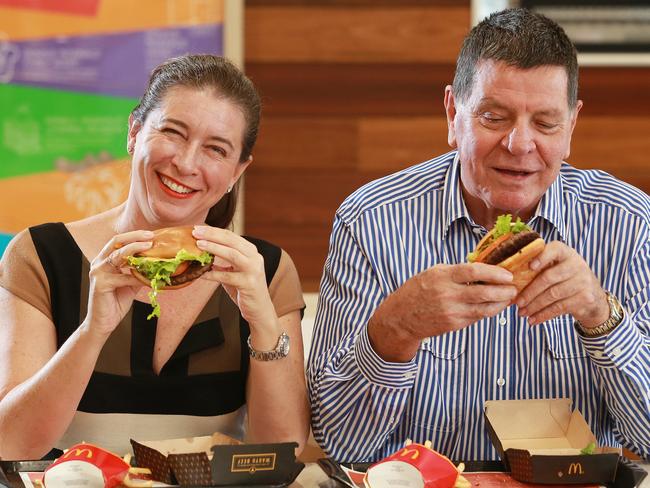
UPPING THE STEAKS
BY MY ESTIMATES, Australians will eat almost two million McDonald’s wagyu burgers before running out of mince.
And despite the labelling controversy, several meat experts I spoke to congratulated McDonald’s for introducing Australians to a “superior eating experience”.
Super Butcher chief Susan McDonald, whose family owns 13 cattle properties, says Macca’s has given meat-loving Australians the opportunity to taste beef they may not have tried before.
“It is like good wine. You go to a bottle shop and reach for the top shelf or choose something cheaper,” she says.
If the debate sparks a red-blooded discussion about beef quality and flavour, that is a good thing.
A similar promotion with an angus burger some years ago boosted the brand, she says.
Ms McDonald, the honorary treasurer of the Royal National Association, joined my tasting panel.
She enjoyed her burger, saying it was a step up from the regular Big Mac.
I agree. I tasted one and thought it was pretty damn good.
Kerry Lonergan, commodities analyst for ABC TV’s Landline, also gave it the thumbs up.
“I was sceptical, but I must say, it was delicious,” he says, adding: “I don’t profess to be a connoisseur of Macca’s – I don’t think I have been in a store for 30 years.”
Lonergan is concerned that wagyu is in danger of saturating the market.
“They have to be careful. It may become a commodity rather than an elite brand,” he says.
UNIONS STING
WHILE grizzling about the cost of living, the Australian Council of Trade Unions is set to impose its own “tax” on the very workers it says are hurting the most.
I’m told the ACTU’s Sally McManus, the darling of the Snivelling Left, will demand a 2 per cent increase in affiliation fees at its triennial congress in Brisbane in July. And heaven help any union who tries to resist.
It means affiliated unions will deliver the ACTU more than $9 million a year for three years.
The sting is necessary because of declining union membership following the Hayden royal commission that found unions riddled with corruption.
Long court battles are costing union members countless millions.
Remember how the ACTU and the federal ALP had to sell its jointly-owned John Curtin House property in the Canberra last year for $12.8 million to pay legal bills.
Once it is cashed up again the ACTU will shore up support for Backhander Bill Shorten with the same kind of misleading “Oh, woe is me” ads now appearing in papers and on television.
It seems to me the McManus-led ACTU is a little tired of elected democracies and is preparing to run the show itself. And what a perfect patsy it has in Backhander Bill.
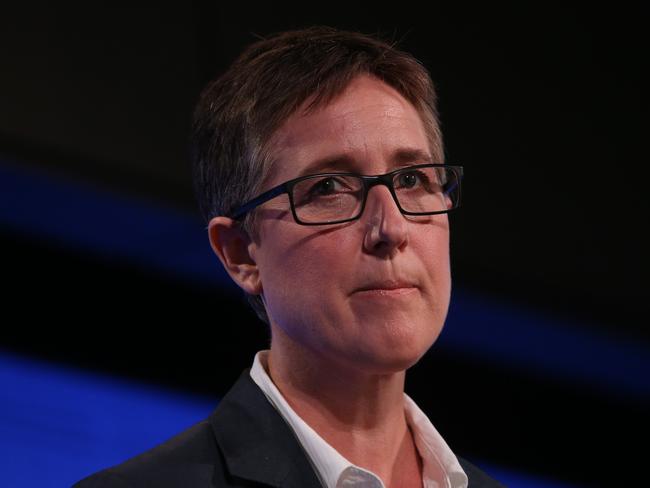
CREDIBILITY GAP
THE aforementioned Sally McManus has a credibility gap when it comes to economic pronouncements.
She has an Arts degree but no formal qualifications in the complex world of business or finance. And she has been in the bosom of the union movement since her university days, so she hasn’t had a real job that I can see.
No wonder business leaders are challenging McManus’s claim that “profits are up at 20 per cent and wages are at 2 per cent. There’s something wrong.”
They point to Australian Bureau of Statistics data showing business profits rose 5 per cent in the year to December and the total wage bill rose 4.8 per cent.
Basic economics tells you that wages go up when unemployment, now at 5.5 per cent, heads down, and unemployment falls when businesses grow.
So the ACTU should really be backing the Turnbull Government’s corporate tax cuts.
McManus was also caught out on her claim that productivity has risen while wages haven’t.
According to the ABS, in real terms, consumer wages have risen 54 per cent during the past 25 years and productivity rose 51 per cent in the same period.
I’m finding it harder and harder to believe a single word that spills from her mouth.
I liked the appraisal of McManus by the Australian Industry Group’s Innes Willox at the Brisbane Club recently: “Her cravings for more collectivism, more centralised power in the hands of union leaders are abhorrent to anyone who reveres individual freedom and understands that unemployment falls when the economy grows. She just is not a believer in growing the national pie.”
WINE FESTIVAL
MICHAEL Platsis from Toowong’s iron-laced Regatta Hotel has been championing Queensland wine for more than three decades now.
The veteran restaurateur’s Queensland wine festival runs again this year on May 26-27 at the hotel’s Boatshed Restaurant and the laneways around it.
Platsis, an honorary ambassador by the Queensland Wine Industry Association, tells me he is on the hunt for some exceptional vintages this year.
IRRITANT OF THE WEEK
THE appalling phone manners of callers who leave incoherent messages or repeat their phone numbers so quickly that are impossible to decipher.


